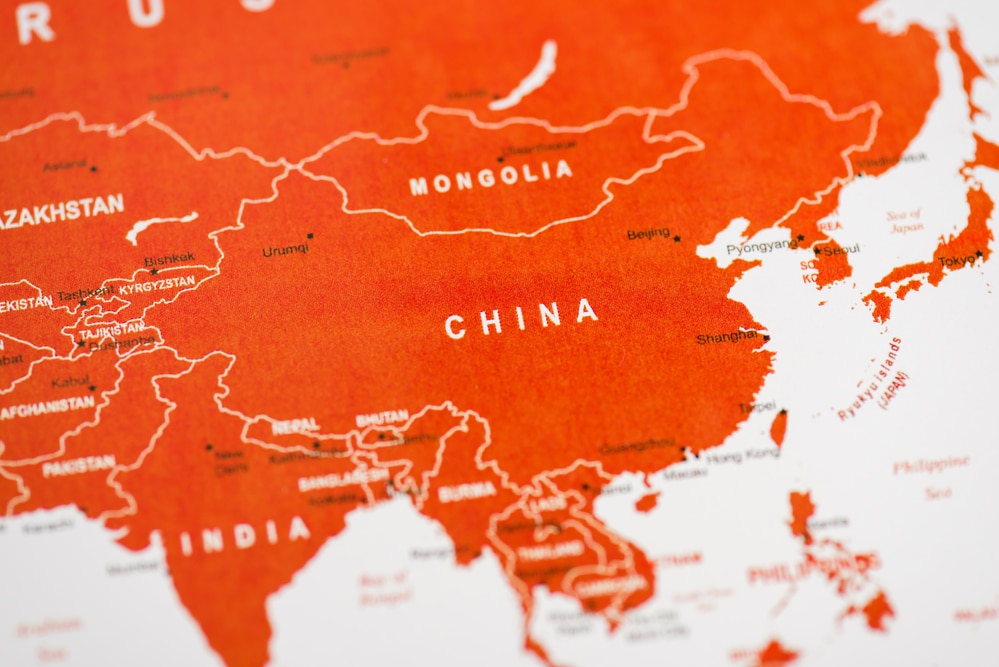Having covered China’s ongoing territorial dispute with the Philippines last week, further details of China’s existing, and settled, territorial disputes seemed in order. For not only has Washington explicitly committed Americans to fight and die over several of these disputes, as in the cases of the Philippines and Japan, but understanding their wider context does much to inform and dispel the fake China threat narrative of a red wave poised to wash mercilessly over its weaker neighbors.
We’ll start with Japan. Like the dispute between China and the Philippines over the Spratly Islands or Scarborough Shoal, the origins of China’s dispute with Japan over the Senkaku or Diaoyu Islands stretch back over a century, and their claims are rooted in differing interpretations of vaguely worded treaties and conflicting historical accounts. Really, though, as then-Premier Zhou Enlai bluntly stated, it was the question of potential undersea oil reserves that made sovereignty over the islands worth disputing. And once the United States, which had been administering the territories in question since the end of World War II, gave up its administrative role, both Tokyo and Beijing got back to disputing possession between them.
For decades Washington took no part. From 2012 to 2014, however, as part of its pivot to Asia, the Barack Obama administration worked with the government of the late Japanese Prime Minister Shinzo Abe to clarify that the United States’ 1960 mutual defense treaty obligations pertained to Japan’s claimed maritime possessions. As in the Philippines, then, Washington has deliberately expanded the possibility of direct conflict between the United States and China.
Meanwhile, while New Delhi and Beijing have several areas of overlapping territorial claims along their 2,000 mile border, the most contentious of these is in Ladakh, in the mountains and on the Depsang Plains. A short, ferocious war between India and China in 1962 established the present status quo, but things have been far from quiet. In 2020-2021 a series of melees resulted in deaths on both sides. Despite this, the most recent statements from both sides consist of pledges to maintain “peace and tranquility” along their shared border. This is well, because while Washington has no mutual defense treaty with India, it has formed an increasingly close security partnership. And the more adversarial relations between Beijing and New Delhi are perceived to be the more empowered to pursue its containment strategy Washington will feel.
Lastly, the complicated case of Vietnam. Like Japan and the Philippines, Hanoi’s disputes with Beijing are entirely maritime in nature. Like India, however, Vietnam shares a land border with its larger neighbor and has fought a relatively recent war against China, that in 1979. But then, like several of China’s smaller and less developed neighbors, Vietnam’s concern for the preservation of its sovereignty and autonomy have to be carefully balanced with its critical economic relations with Beijing. Indeed, the crux of the dispute between the two has to do almost exclusively with the economic benefits to be derived from sovereignty over the disputed islands in question; the Paracels and Spratly among them. While Hanoi is unlikely ever to be in Washington’s pocket, its apprehension over Beijing’s assertion of its privileges under the so-called “nine-dash line” means it will welcome Washington’s conduct of so-called “freedom of navigation” exercises in these disputed waters. Sailing U.S. warships into waters claimed by China and near its shores in the name of securing oil and fishing rights for Vietnam may not sound like it’s in the interest of America or Americans—but hey, that’s why you’re not in Washington making these decisions.
Despite its almost uniformly cartoonish depiction in the western corporate media as aggressively seeking to bestride the globe, and for all its outstanding border disputes, Beijing has already peacefully settled several such similar long-standing disputes with Kazakhstan, Kyrgyzstan, Tajikistan, Russia, Mongolia, the two Koreas, Laos, Myanmar, and Pakistan. In many of these cases, such as the Koreas, Tajikistan, and Kazakhstan, China accepted a far smaller portion of the territory for itself in the final settlement. In several others, such as the smaller states along its south and southwest, Beijing was equally generous in the terms it accepted.
Make no mistake: this was not because China or its leaders are “generous.” Rather, the logic of China’s position dictated its policies. Relations with Mongolia, for example, need be nothing but normal, for as things stand Mongolia is effectively an economic colony of China. In the cases of Laos and Myanmar, failure to pursue peaceful settlements on terms acceptable to its neighbors could have caused headaches for Beijing among its many potentially resistive minorities along its long, jungled frontier.
Finally, it is worth pointing out that the government in Taipei, Taiwan, also lays claim to many of the above disputed territories—including several that Beijing has already negotiated away. Further, that it was Chiang’s Republic of China that first produced the modern “nine dash line” map laying claim to sovereignty over the South and East China Seas—so the idea that a democratically transformed China would have been some peaceful, pliant good neighbor is oh so much more of Washington’s predictable balderdash.
As Joe Biden prepares to meet with Xi Jinping this week, we can only hope that more sensible heads will prevail when it comes to relations with China. The relationship need not be that of best friends, but that does not and should not mean that China is cast in the role of foe instead. Azerbaijan faces no consequences for its recent conquest, nor Egypt for its long and paltry human rights record. Washington needs some grownups at the wheel, ones who will deal pragmatically with the world as it is, not as they envision forcing it to be.
































